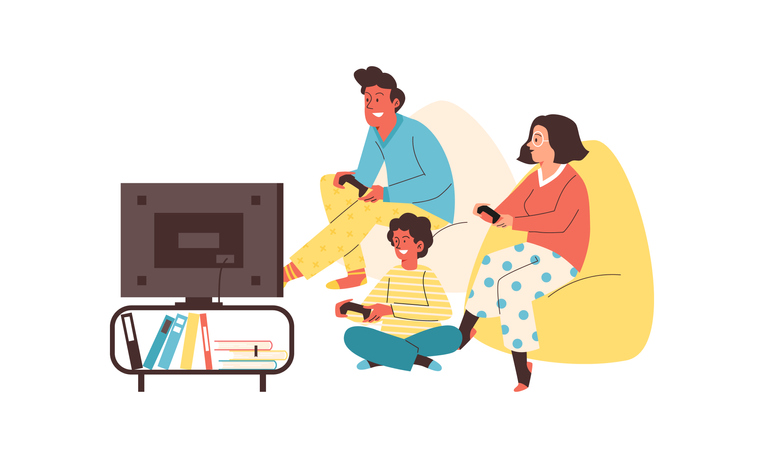Video games have become part of the daily lives of children, youths, and in many instances, even the elderly public; they are undoubtedly one of the most popular forms of entertainment today. Some are specifically designed to serve didactic purposes. Also, their competitive practice has become an essential tool for recruiting and training university students.
Screen time limits have been a primary concern for teachers and heads of households. Setting reasonable play times is a priority, but in the face of a growing conversation about the educational dimension of video games, one should also ask what benefit they have in a daily family routine or a school curriculum.
A development tool
Dr. Cheryl K. Olson, a researcher specializing in health and behavior, has written extensively about the didactic advantages offered by video games; her first contact with them was through her family. She argues that their frequent practice can help childhood brain development. In Legend of Zelda, for example, her son learned to search, negotiate, plan, and try different routes to advance in the game. Many other titles involve problem-solving as one of the most fundamental challenges of the gaming experience.
Video games also spark interest in different areas of knowledge. The Age of Empires game can easily encourage a family to research or talk about family history in the same way, that Penguin Jump can foster skills and passion for math.
The socialization and training of cooperative work and healthy competition is other critical didactic benefit of video games. The multiplayer modes, monitored by older managers, are an excellent tool for children to start collaborating in groups, bond, and experience the collective aspects of learning.
The artistic and creative skills of childhood can also be highly benefited by games such as Minecraft or Roblox, which are like canvases on which you can create from scratch the experience you want. In previous articles, we have written about the enormous potential of video games. That said, heads of households must be aware of the time being played and get involved in the experience. Why is this important?
The family aspect
Bringing video games into the family sphere, with reasonable schedules and approaches agreed upon as a team, can enrich the dynamics at home. The most direct consequence is quality time, creating and maintaining a link with children at home, learning their interests, and opening a path for family communication.
The social worker and specialist in healthy video game practices, Andrew Fishman, clearly explains how conversation can improve when heads of households understand the experience of play and know how to balance it with other activities, such as household and school chores. A concise example he mentions is comparing two ways of saying the same thing, one with a greater awareness of the social dynamics in a video game and the other without this knowledge.
Saying, “You need to stop playing so much; you’re getting bad grades,” is not going to have the same effect as saying, “I know you’re playing WoW with your friends, but after this round, you have to stop to do your homework.” Understanding that WoW and many other games feature an online mode that cannot be stopped until the end of the game makes it much more likely that the message gets heard and the instruction followed.
Fishman continues to address the issue of appropriate content. If the heads of households also play, they can learn the games’ classification criteria, know how to interpret them, and, thus, acquire appropriate titles. It is crucial for online modes aimed at an adult audience, which can have older people in the chatrooms with environments or conversations unsuitable for minors.
He adds that the possibility of intersecting the interests of children with an educational line can lead to a valuable resource. If the child is interested in the game’s story, there may be concern about the writing. If art is highlighted, children can be encouraged to perform activities related to design or painting. If the technical aspects call their attention, there are programming camps for all ages.
Playing video games as a family is an opportunity to meet, guide, and channel its members to healthy practices, and positive experiences. and educational paths that would not be cleared otherwise. Do you play at home? What are the schedules proposed in your home? What titles does your family prefer? Let us know in the comments.
Translation by Daniel Wetta
This article from Observatory of the Institute for the Future of Education may be shared under the terms of the license CC BY-NC-SA 4.0 
)
)


)